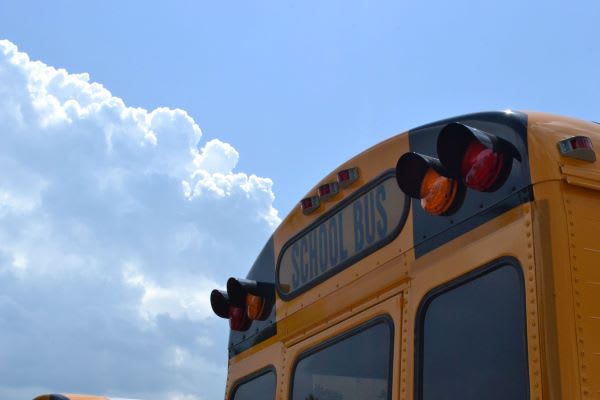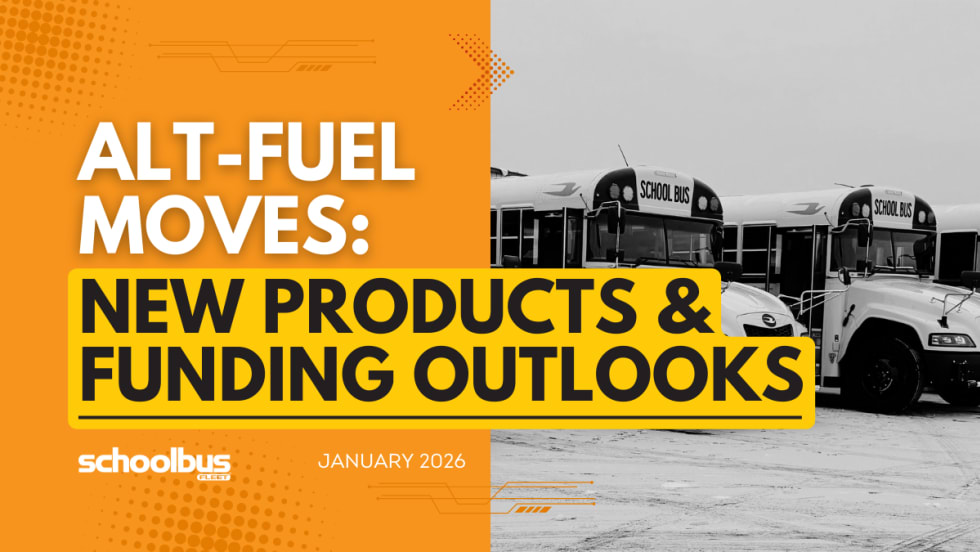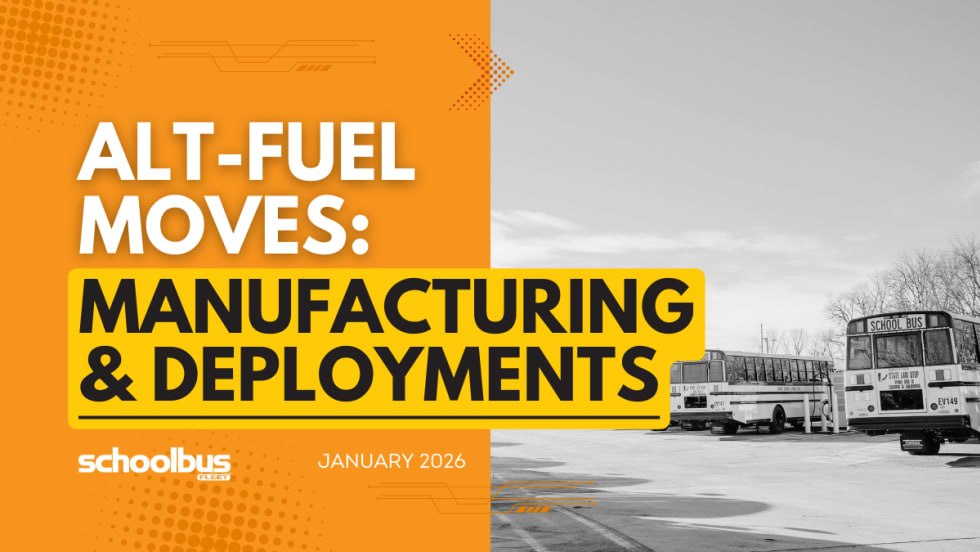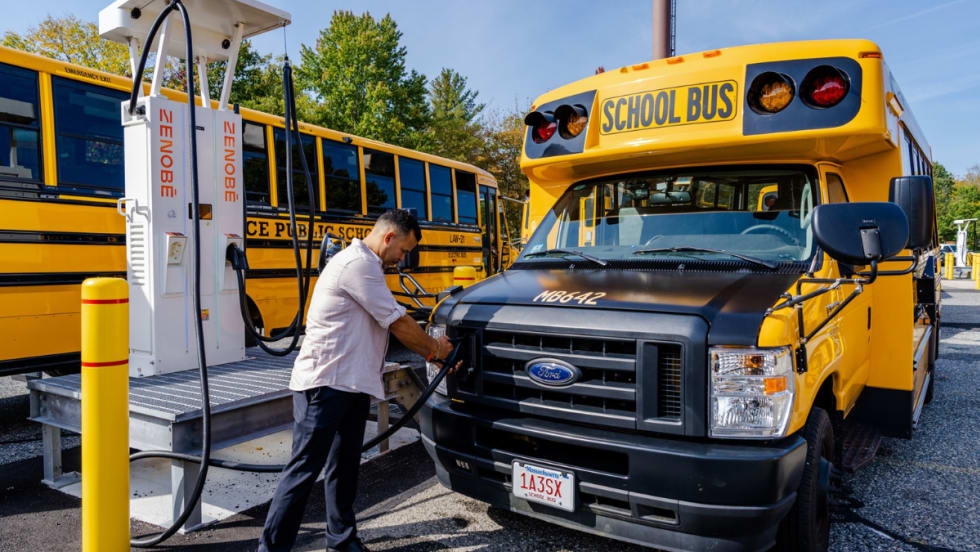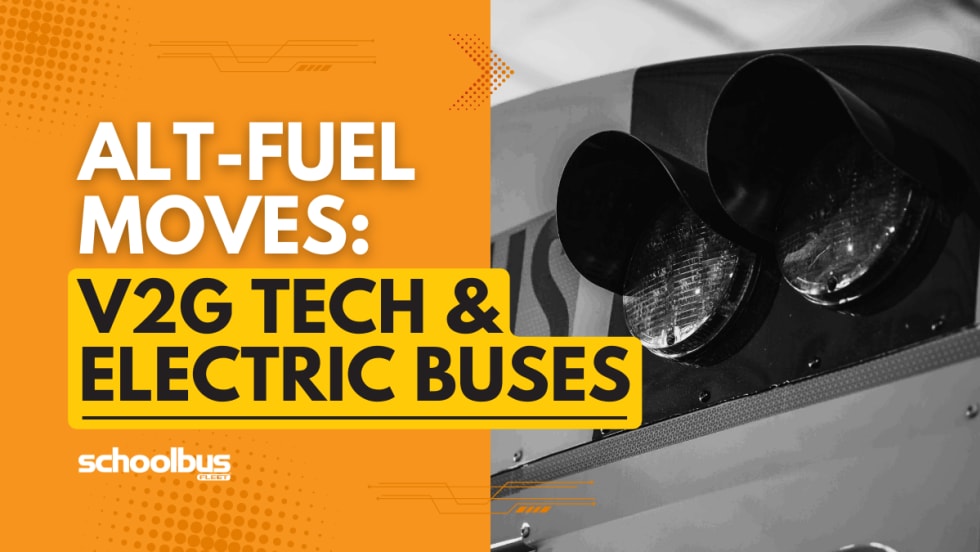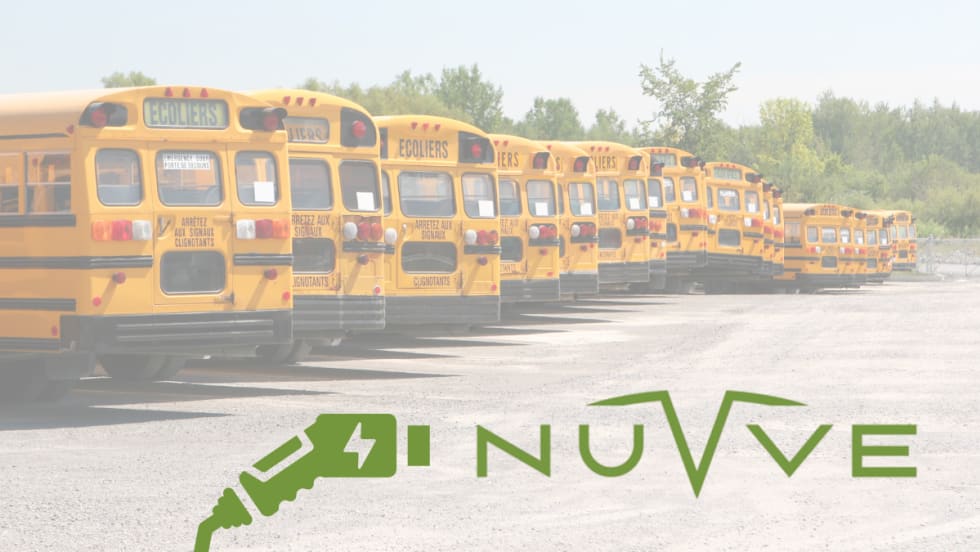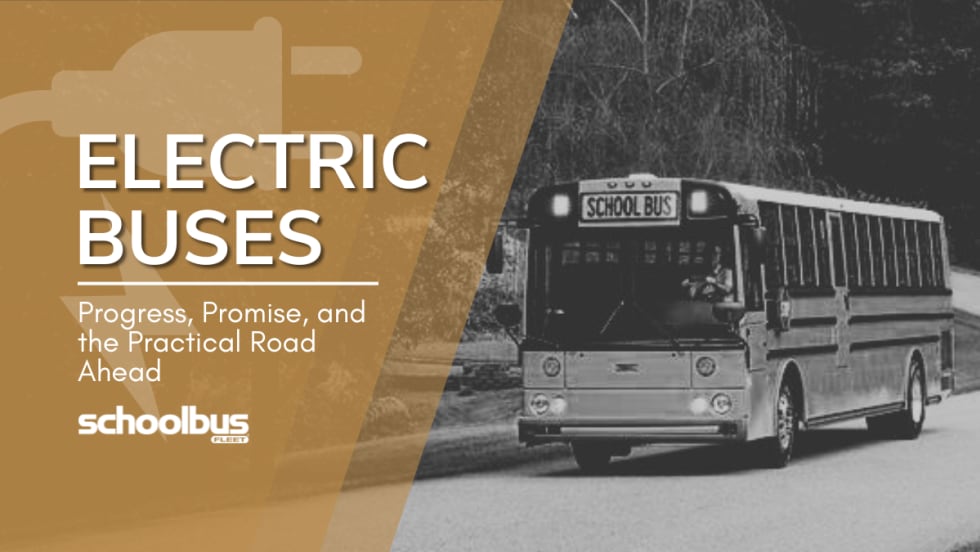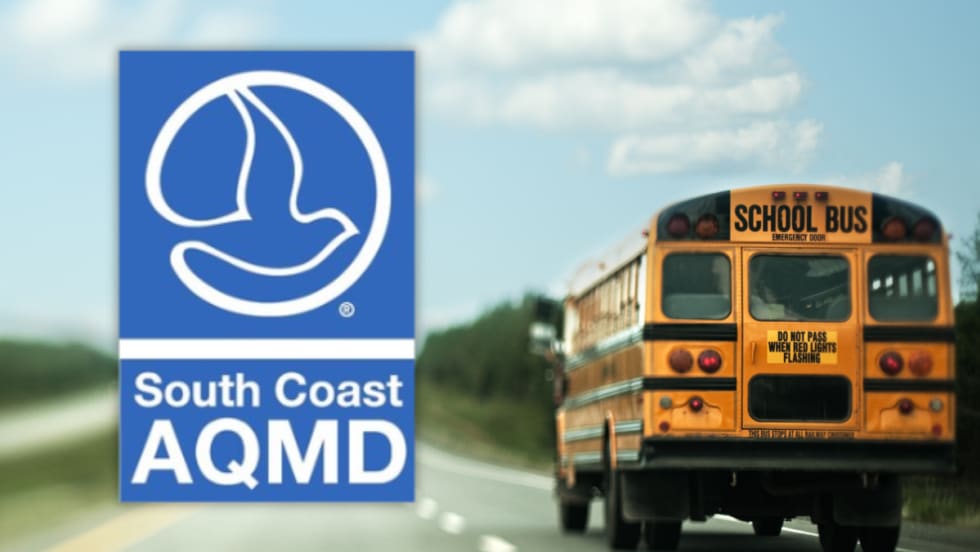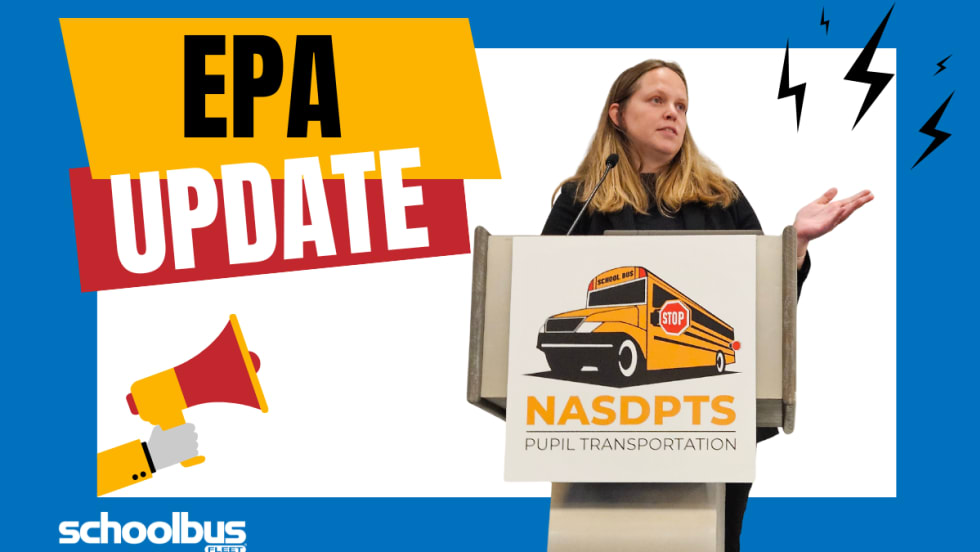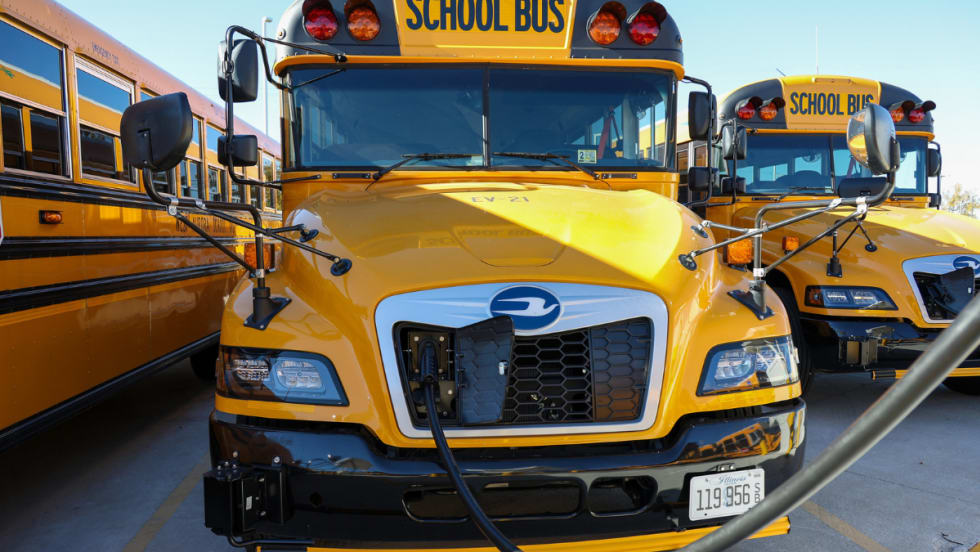Federal lawmakers introduced on Wednesday legislation that would invest $25 billion to transition a significant portion of the nation’s school bus fleet to electric.
U.S. Senators Alex Padilla (D-Calif.) and Reverend Raphael Warnock (D-Ga.) and U.S. Representatives Tony Cárdenas (D-Calif.) and Jahana Hayes (D-Conn.) introduced the Clean Commute for Kids Act, according to a news release from Padilla’s office. The legislation authorizes the funds over the next 10 years for the Environmental Protection Agency (EPA), with assistance from the U.S. Department of Energy, to provide grants to replace existing buses with clean, zero-emission buses.
The bill reportedly builds off of President Joe Biden’s $2.3 trillion infrastructure plan — which includes plans to electrify at least 20% of the yellow school bus fleet — to make improvements to children’s health, according to the Associated Press.
Key points in the bill include:
· 40% of the funding would go toward replacing school buses serving environmentally and socioeconomically disadvantaged communities.
· Funding awarded to school districts may cover up to 100% of the replacement costs of zero-emission buses, including acquisition and labor costs for charging infrastructure, workforce development and training, and planning and technical activity costs.
· Directing the EPA to develop an outreach program to assist school districts in transitioning school bus fleets.
On a typical day before the COVID-19 pandemic, nearly 25 million children in the U.S. rode over 500,000 predominantly diesel buses to school, according to the news release.
“Providing a quality education for children starts before they even arrive at school,” Padilla said. “I know firsthand how outdated diesel school buses expose our young people to harmful pollution. Children in working-class communities — like the one I grew up in — face higher rates of asthma and respiratory issues, which have a direct impact on their ability to learn. That’s why I’m proud to introduce legislation that will accelerate the deployment of cleaner school buses.”
Padilla added that transitioning the U.S.’s school bus fleet to zero-emission vehicles is “an essential aspect of building equitable, sustainable infrastructure and is a wise investment in our children, our environment, and our future.”
School districts are making the switch to electric buses across the U.S., many of them in California. The California Air Resources Board (CARB) has leveraged federal funding to assist school districts and local air boards with the costs of school bus replacements, according to the news release. This bill will accelerate the transition and provide funding to reach more schools.
The bill is co-sponsored by Senators Tina Smith (D-Minn.), Bernie Sanders (I-Vt.), Dianne Feinstein (D-Calif.), Ed Markey (D-Mass.), Ron Wyden (D-Ore.), Jeff Merkley (D-Ore.), and Debbie Stabenow (D-Mich.).
Groups in support of this legislation include the American Federation of Teachers, Calstart, EarthJustice, the Edison Electric Institute, the Environmental Defense Fund, the Environmental Law and Policy Center, GreenLatinos, the League of Conservation Voters, Mom’s Clean Air Force, and the Union of Concerned Scientists.
“Innovators like Georgia’s own Blue Bird Corp. are already leading the way to replace older diesel buses with cleaner, zero-emission electric school buses, and strengthening federal funding to make our infrastructure more sustainable is an investment in the health of our country, our planet and our economy,” Warnock said. “The Clean Commute for Kids Act will help keep our students safe, create good-paying jobs, and modernize our country’s vital transportation infrastructure.”
“Communities across America – especially communities of color – are facing some of the worst health and respiratory problems from breathing polluted air,” Cárdenas said. “Now, during the COVID-19 crisis, we have an even greater responsibility to improve the health of all Americans by removing pollutants from our environment, making critical investments in clean energy technology, generating good-paying American jobs, equipping our nation with 21st-century infrastructure, and setting ourselves on a path to a strong recovery in the years to come.”



